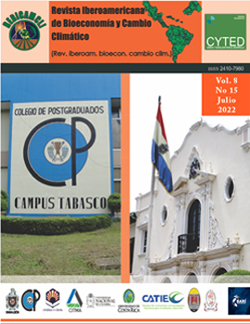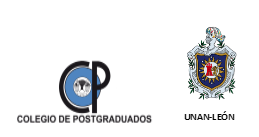Effect of sodium bicarbonate and vitamin C as heat stress relievers on the productive performance of Broiler chickens of the Cobb 500 line, León-Nicaragua
DOI:
https://doi.org/10.5377/ribcc.v8i15.14314Keywords:
Heat stress, Poultry farm, broilers, Productive performance, baking sodaAbstract
The objective of the study was to evaluate the effect of sodium bicarbonate and vitamin C on the productive behavior of Broiler chickens of the Cobb-500 line. A completely randomized design (DCA) was used, and Duncan's test was used through the statistical program InfoStat Version 2008. The study lasted 6 weeks, 120 one-day-old chickens were used with 40 chickens per treatment. Three treatments were evaluated: control (without addition), vitamin C at a dose of 5 mg/lt and sodium bicarbonate at a dose of 48 mg/lt in the water. No significant difference was found between treatments. Sodium bicarbonate presented better results. The highest total feed intake was obtained by the bicarbonate group with 168,902 g, followed by the control with 164,507 g and vitamin C with 163,885 g. The best total average weight was obtained by the bicarbonate group with 201 g, followed by the control with 2638 g and vitamin C with 2574 g. Average weight gain was best for the bicarbonate group at 2,651 g, followed by control at 2,590 g and vitamin C at 2,524 g. The best feed conversion was obtained by the bicarbonate and control groups with 1.63 respectively, followed by vitamin C with 1.71. Mortality of 2.5% is reported for the bicarbonate and control groups, respectively, and 5% for vitamin C. The average temperature and relative humidity record in the galley was 28°C and 66%, respectively.
Downloads
990
HTML (Español (España)) 0
Published
How to Cite
Issue
Section
Categories
License
Copyright (c) 2022 Rev. iberoam. bioecon. cambio clim.

This work is licensed under a Creative Commons Attribution-NonCommercial-ShareAlike 4.0 International License.
Copyright © Rev. iberoam. bioecon. climate change (Graduate School and UNAN-León, School of Agricultural and Veterinary Sciences / Department of Agroecology / Center for Research in Bioeconomy and Climate Cahnge (CRByCC).







